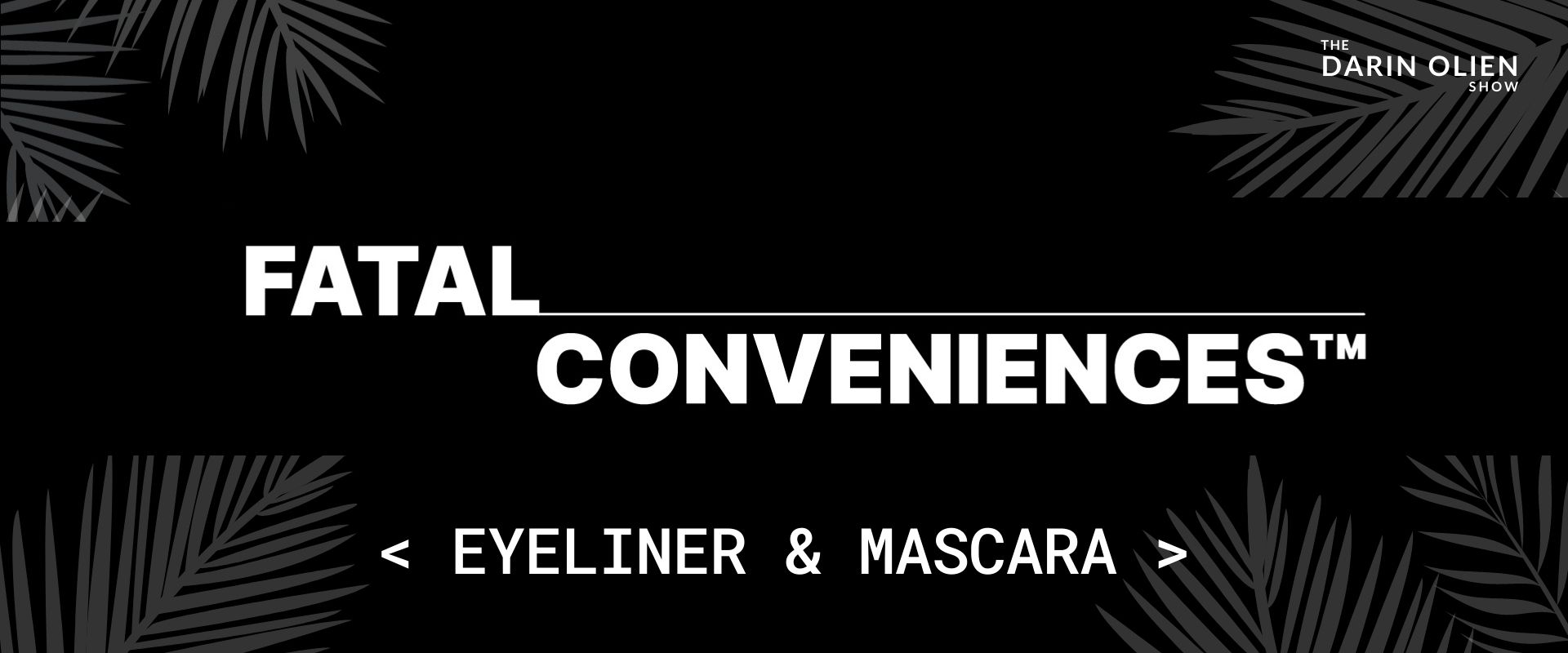17 Mar Eyeliner & Mascara | Fatal Conveniences™

Podcast: Play in new window | Download
Subscribe: RSS
They say the eyes are the windows to the soul. So of course there would be a desire to make those eyes pop. But using eyeliner to define your eyes may not be as harmless as you think.
WELCOME TO Fatal Conveniences™.
The area around your eyes contains some of the most sensitive skin on your body. 
Using eyeliner to enhance the eyes has been popular for thousands of years- maybe even longer! The ancient Egyptians were known for their rich black lines defining their eyes, giving a distinctive sophisticated look. Although scientists believed the use of eyeliner in ancient cultures was strictly for aesthetic purposes, recent research seems to point to another reason. It turns out, kohl, the mineral substance used in early eyeliners, actually helped prevent bacterial infections of the eye.
Although kohl may have antibacterial properties, it’s also full of dangerous heavy metals like lead and antimony. You may not find kohl in today’s eyeliner products- in fact, it’s now banned in the US- but there are still plenty of dangerous chemicals. Most eyeliners you find at beauty supply stores or pharmacies are filled with phthalates, parabens, artificial coloring and propylene glycol.
In this episode, we’ll go through the toxins found in makeup like eyeliner and what they can do to your health. I also dive into the sensitivity of the eyes and the surrounding skin, and what’s best to use in that area. And of course, I’ll give you some safe alternatives to experiment with. But just a reminder, the natural look is in! Let those eyes shine on their own.
BREAKDOWN
[00:01:50] A brief history of the use of eyeliner
[00:03:40] So, is eyeliner really that bad?
[00:07:46] How to wean yourself off these products
I really hope you enjoyed this episode of The Darin Olien Show! If you want to support or follow the podcast, here’s how:
Subscribe, rate or listen on Apple, Spotify, Stitcher
Follow my Instagram to keep updated on the podcast, weekly deep dives and other projects that I’m supporting (and the occasional Chaga appreciation post)
Sign up for my weekly Fatal Conveniences™ Email to get topic breakdowns & solutions delivered straight to your inbox.
For feedback or suggestions, email my team at info@darinolien.com
Find the list of brands & products that get the big tick of approval from me here.
Comment below to join the discussion!
Podcast: Play in new window | Download
Subscribe: RSS


SUSAN R HILL
Posted at 14:46h, 18 MarchEvery episode is so informative.I appreciate the work you put into compiling ways for us to learn how to do and be better ~ THANK YOU